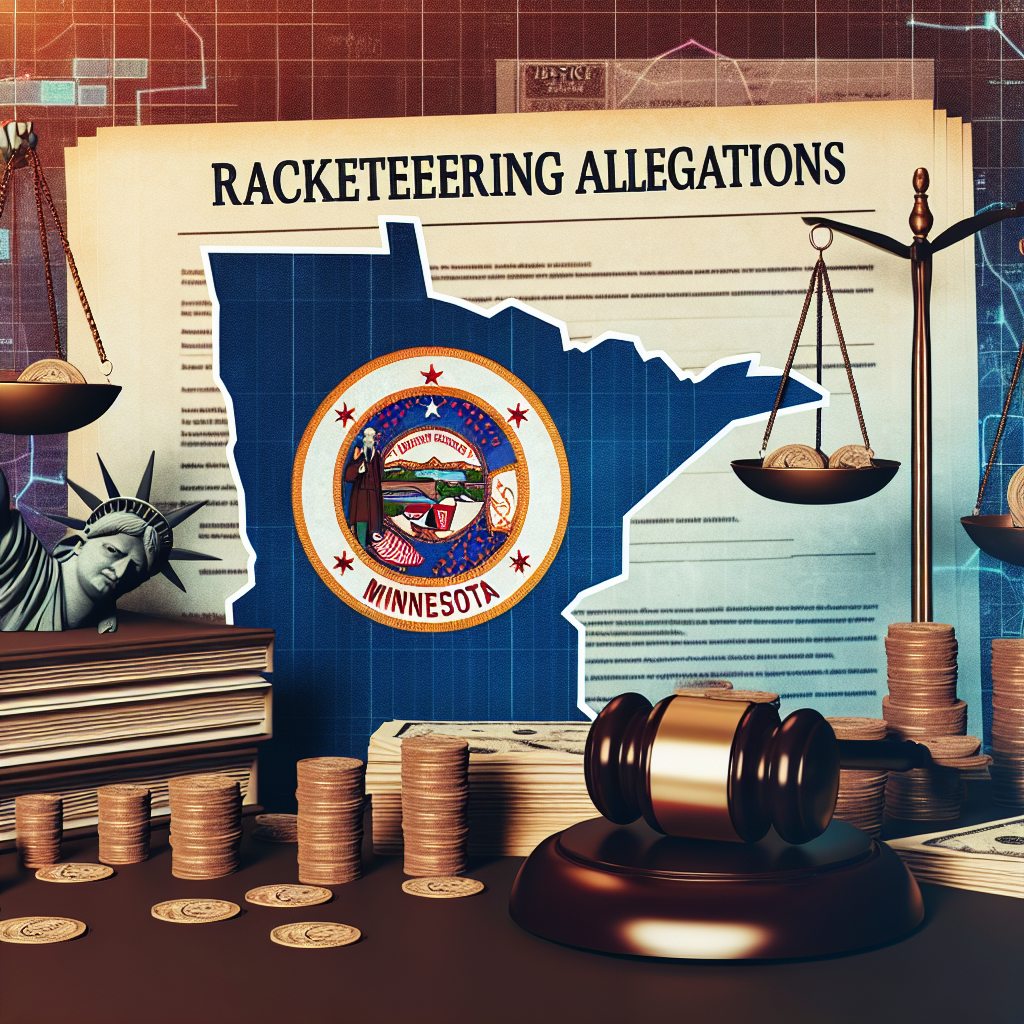Anywhere Accused of Racketeering in Minnesota Lawsuit
In a surprising turn of events, Anywhere, a prominent company known for its diverse business ventures, has been accused of racketeering in a lawsuit filed in Minnesota. This legal battle has captured the attention of both the public and the business community, raising questions about corporate ethics and legal accountability. This article delves into the details of the lawsuit, the implications for Anywhere, and the broader impact on corporate governance.
Understanding Racketeering and RICO
Racketeering, often associated with organized crime, involves engaging in illegal business activities as part of an ongoing criminal enterprise. The Racketeer Influenced and Corrupt Organizations Act (RICO) is a federal law designed to combat organized crime by allowing prosecution and civil penalties for racketeering activities. RICO has been instrumental in dismantling criminal organizations, but its application to corporate entities is less common and often more complex.
The Allegations Against Anywhere
The lawsuit filed in Minnesota accuses Anywhere of engaging in a pattern of racketeering activities that allegedly include fraud, bribery, and money laundering. According to the plaintiffs, Anywhere orchestrated a scheme to manipulate financial records and deceive investors, resulting in significant financial losses for stakeholders.
- Fraud: The plaintiffs claim that Anywhere falsified financial statements to inflate its stock value, misleading investors about the company’s true financial health.
- Bribery: Allegations suggest that Anywhere engaged in bribery to secure lucrative contracts and favorable regulatory decisions.
- Money Laundering: The lawsuit accuses Anywhere of using complex financial transactions to conceal the origins of illicit funds.
Case Studies: Corporate Racketeering
While corporate racketeering cases are rare, they are not unprecedented. Notable examples include the Enron scandal, where executives engaged in accounting fraud to hide the company’s financial losses, and the case against WorldCom, which involved similar fraudulent activities. These cases highlight the potential for corporate entities to engage in racketeering-like behavior, often with devastating consequences for investors and employees.
Implications for Anywhere
The lawsuit poses significant risks for Anywhere, both legally and reputationally. If found guilty, the company could face substantial financial penalties, including damages to compensate affected investors. Additionally, the negative publicity surrounding the case could harm Anywhere’s brand image and erode consumer trust.
Moreover, the lawsuit may prompt regulatory scrutiny and lead to increased oversight of Anywhere’s business practices. This could result in stricter compliance requirements and operational changes to prevent future misconduct.
Broader Impact on Corporate Governance
The allegations against Anywhere underscore the importance of robust corporate governance and ethical business practices. Companies must prioritize transparency, accountability, and integrity to maintain stakeholder trust and avoid legal pitfalls. The case also highlights the role of regulatory bodies in monitoring corporate behavior and enforcing compliance with legal standards.
In response to such cases, businesses may implement stronger internal controls, enhance whistleblower protections, and foster a culture of ethical conduct. These measures can help prevent misconduct and mitigate the risk of legal action.
Conclusion
The racketeering lawsuit against Anywhere in Minnesota serves as a stark reminder of the potential consequences of unethical corporate behavior. As the legal proceedings unfold, the case will likely have far-reaching implications for Anywhere and the broader business community. Companies must remain vigilant in upholding ethical standards and ensuring compliance with legal requirements to safeguard their reputation and maintain stakeholder trust. Ultimately, the outcome of this lawsuit could set a precedent for how similar cases are handled in the future, emphasizing the need for transparency and accountability in corporate governance.



